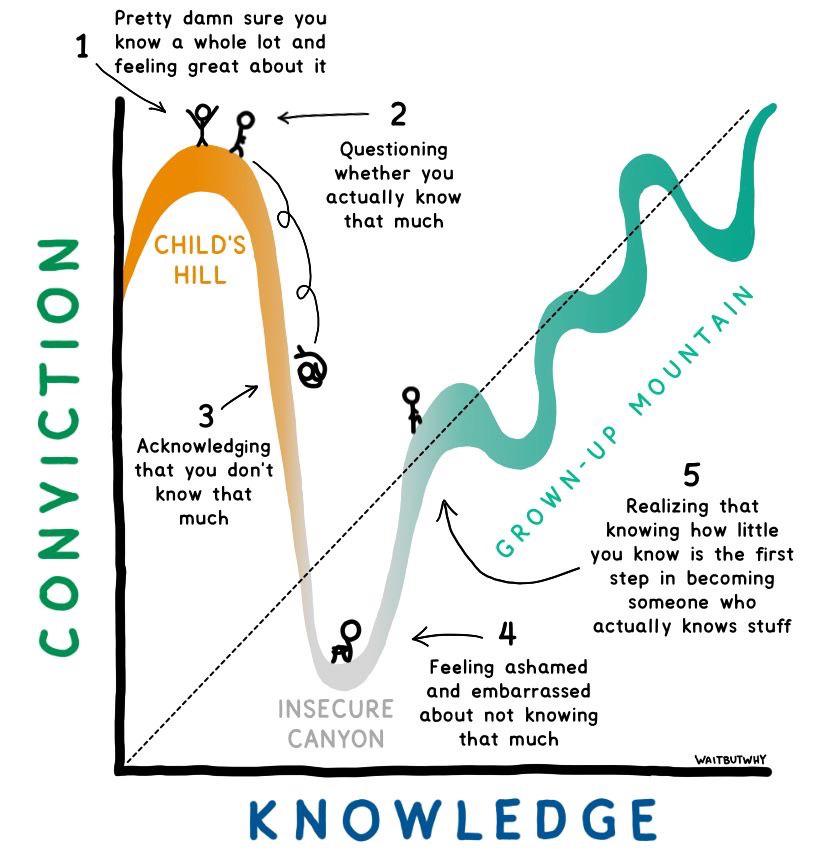Home / Philosophy / Alpha and Omega
Pitfalls
Dunning-Kruger

- Knowing less but presuming more: Dunning-Kruger effects and the endorsement of anti-vaccine policy attitudes
- We ignore what doesn’t fit with our biases – even if it costs us
Biases: Cognitive and Confirmation
Meyers Briggs: Pop Psychology
- "The Dark Side of That Personality Quiz You Just Took"
Personality tests have captivated people for decades, but their newfound popularity online makes them dangerous. - "The Myers-Briggs Personality Test Is Pretty Much Meaningless"
Everybody relies on those four letters far more than they should" - "The Most Popular Personality Test In The World is a Joke"
The Personality Brokers goes into the flawed, fraught history behind the Myers-Briggs Type Indicator, which is about as psychologically credible as a BuzzFeed quiz. - The rise of pop-psychology: can it make your life better, or is it all snake-oil?
Pyschologizing:
From Freud to Positive Psychology
- Freud
- coincided with popularizing psychology terms
- ego, id, self-esteem
- The age of pseudo-science
- Positive Psychology
Problems with words
Comprehend/Apprehend
- Though many variations of these words exist, we will use them to differentiate between comprehend (being taught something to the point of understanding) and apprehend (learning something to the extent that your mind makes the final leap to making meaning.)
Recall/Remember
- We tend not to think of these as different words, but they are, and perhaps may be the reason you are not doing as well as you could in classes.
- To recall something is to have some outside influence stimulate your memory, such as a multiple choice test that presents the possible answer to you and you merely have to recall the correct answer.
- To remember something though means doing so without an outside and direct stimulus.
Nature/Natural
- We tend to use these words to mean "that's just the way things are, no explanation or reason needed."
- Example: It's natural to be jealous. Actually, no it's not. Quite the opposite, the creation of civilization and of property 10,000 years ago spurred people to be jealous. See the Mosuo of China
Problems with Structures
Opposites
- Opposites rarely exist
- We intuitively accept generally held notions of opposites without thinking about them.
- Live vs. Death
- We barely have a grasp of what life is, and we have a reductive understanding of death.
- How can we say they are opposite
- Left side vs. right side
- Politically, the agenads are different lists---not directly oppposing ideas.
- Bodily, these are sides of the bottom. Your right eye is not the opposite, the negative, of the right eye.
- Good vs. evil
- We would have to know the extent of what good means to suggest the opposite of that is evil.
- Hihgly improbable the answer of "what is good/" will ever be discerned.
- Truth vs. lie
- Begs the question that the truthsayer deeply and with full mindfullness knows the Truth--not believes it, but knows it.